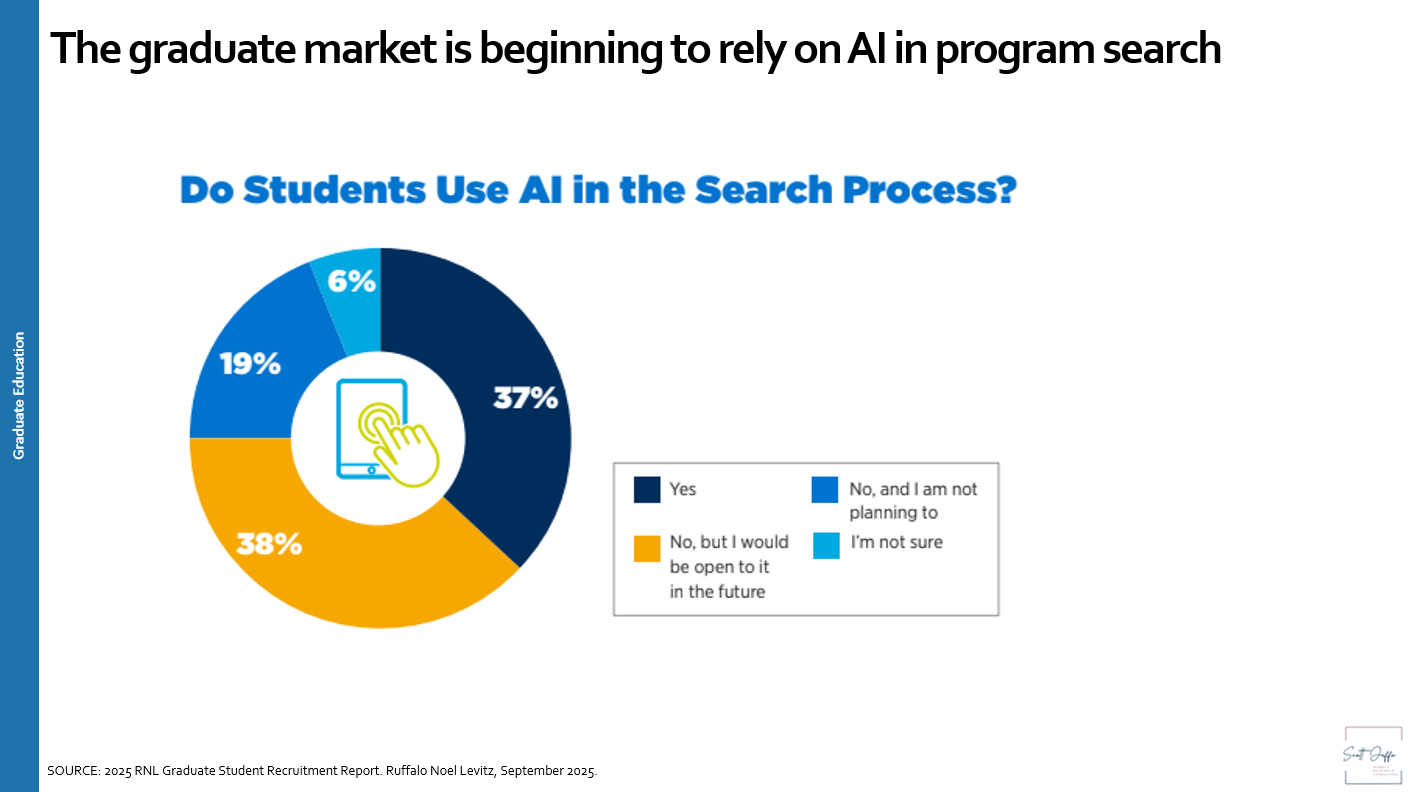
Conversations: How to Think About - and Talk About - AI in Digital Strategy
“AI isn’t replacing expertise—it’s augmenting it.”
In this edition of Coffee with Scott, I reconnect with my old friend Rebecca Murison, a digital marketing strategist whose career I’ve had the privilege to watch go from junior strategist to team leader. Every time I talk with Becki, I leave not only knowing more, but understanding more! Becki recently wrote a blog on the role of AI in digital strategy that caught my attention—and with AI redefining search, social, and advertising, I knew it was time for a deeper conversation. Watch the video of our chat here.
Becki has a way of talking about digital strategy that helps build your vocabulary as well as your knowledge. From AI-driven media planning to real-time personalization and the coming wave of ads in AI platforms, her practical approach offers a grounded, practitioner’s perspective on what’s hype, what’s happening, and what’s coming next.
Scott: What’s the biggest challenge in digital marketing and strategy right now?
Becki: AI—without a doubt. It’s transforming everything, from how people search to how social algorithms deliver content. We’re seeing click-through rates shift, at least partially due to the AI summaries at the top of Google results, and other platforms adding their own AI-driven features. It’s cutting into every corner of the digital landscape and the platforms themselves are still working through how they will “monetize” it – which will likely help in digital marketing.

Use of AI in graduate program searches, reported in RNL's 2025 Graduate Student Recruitment Report.
Scott: You have mentioned that you’re using AI tools—like ChatGPT, Perplexity, and Claude—for media planning, content development, keyword strategy, and audience segmentation. How does that work in practice?
Becki: We’re not at a point where AI replaces the fundamentals of good strategy. You still need discovery sessions and human insight to truly know your audience. AI expands what we can do. Here are some examples:
Media Planning: If we know budgets shift seasonally, AI helps model channel allocations quickly—beyond what spreadsheets can handle.
Targeting: For a client aiming to reach military audiences, AI identified nearby bases across multiple states, saving hours of manual research.
Scott: You’re also using AI to optimize delivery. How?
Becki: Platforms like Google have used AI for years—think Smart Bidding in Google Ads. Now, features like Demand Gen use AI to size, place, and target ads across YouTube, Display, and Search from a single campaign. We also use conversational AI tools to validate strategies—asking “What if?” questions and getting alternative approaches. But it is incredibly important that strategists and their leaders remember that these tools are designed to be helpful first, accurate second. They will tell you what you want to hear. That’s why prompt engineering is essential—you need to ask the right questions and always cross-check the answers.
Scott: What about AI for personalization? Can it replace the detailed persona work we used to do?
Becki: No—it augments it. AI can suggest new audience attributes or behaviors, but you still need real data and research to avoid hallucinations. Good prompts are key. We even had a junior team member take a prompt engineering course to strengthen that skill.
Scott: Do you think we’ll see ads directly in AI platforms?
Becki: It’s already starting in small ways—Perplexity offers ads to select clients. ChatGPT has hinted at launching a social network, which could open new ad opportunities.
Right now, most AI platform revenue comes from business integrations, not subscriptions. But if history is any guide, ads are coming—and they’ll reshape how marketers approach these tools.
Scott: How would you summarize the situation right now for digital marketers?
Becki: Here are five takeaways or talking :points that I think are helpful for people to use in conversations about AI:
AI is an accelerator, not a replacement. It handles calculations, targeting, and optimization—but still needs human oversight.
Prompt engineering matters. Better prompts produce better, more actionable AI outputs.
“Trust, but verify” is essential. AI can sound confident even when wrong—fact-check its advice.
Personalization is evolving. AI can expand personas, but data and discovery remain the foundation.
Ads in AI platforms are coming. Prepare now for new monetization models and targeting opportunities.
My Take. AI’s role in digital marketing isn’t a passing trend—it’s a structural shift in how strategies are built, campaigns are optimized, and audiences are understood. Becki’s perspective underscores a critical truth: the marketers who will thrive in this new landscape aren’t the ones chasing every shiny tool, but those who blend AI’s speed and scalability with human insight, creativity, and judgment. The future isn’t “AI versus expertise”—it’s AI plus expertise, working together to unlock opportunities faster, target more precisely, and personalize more effectively. And if Becki’s predictions are right, the race to monetize AI platforms will only accelerate the pace of change, making adaptability the most valuable skill of all.